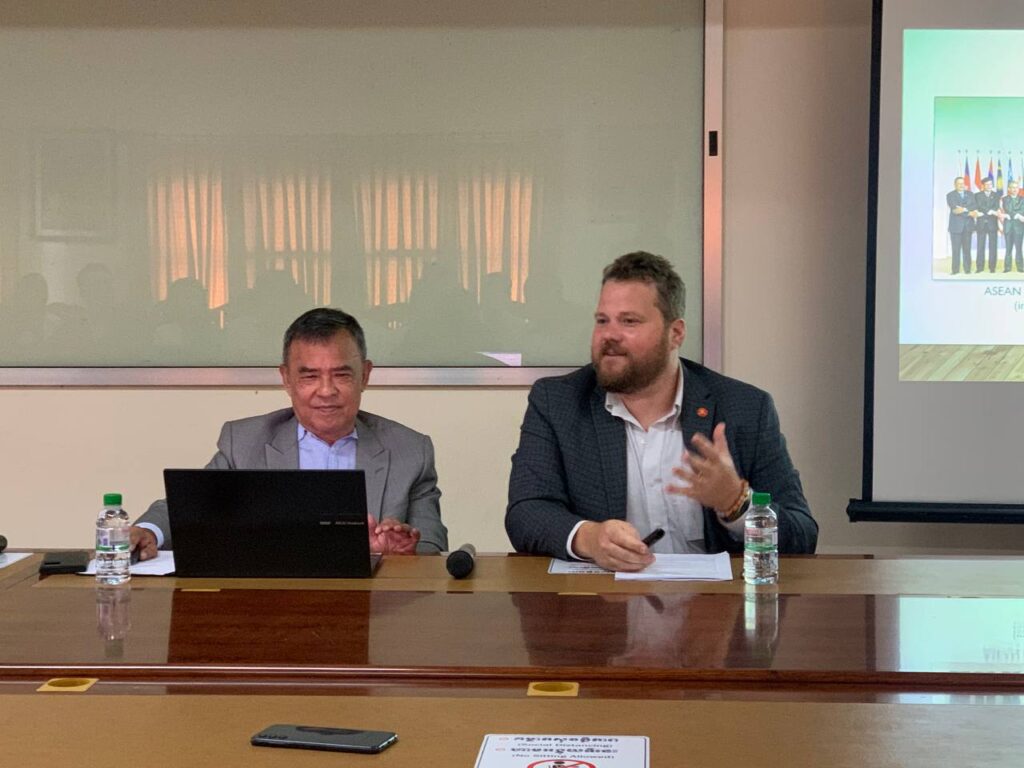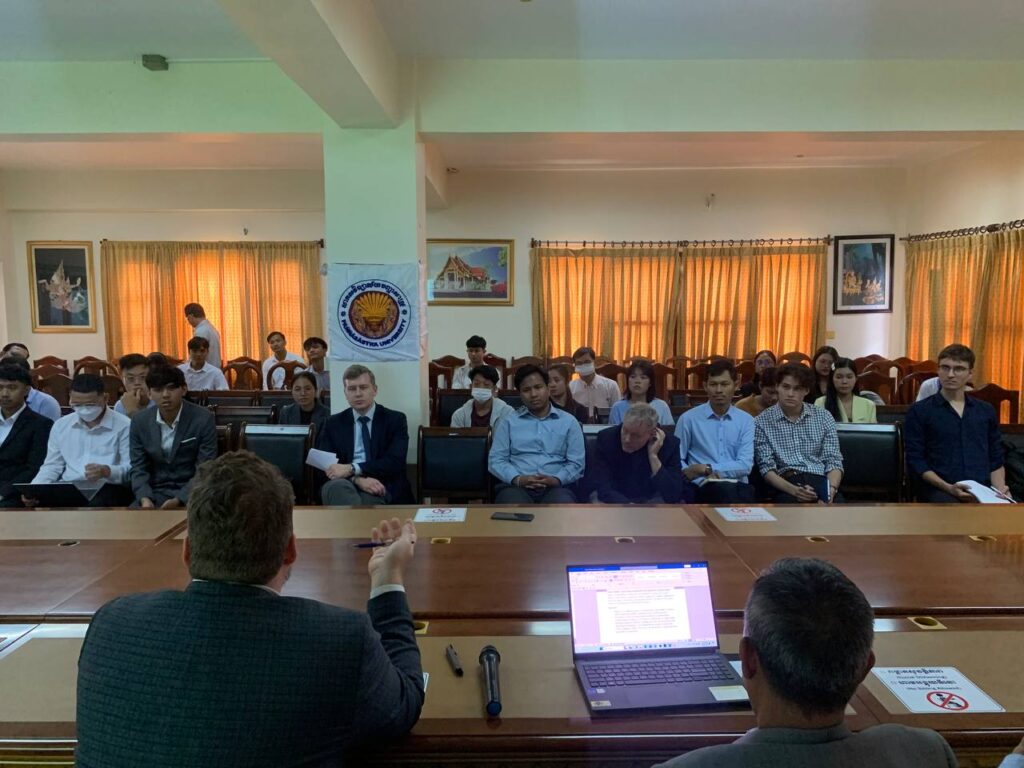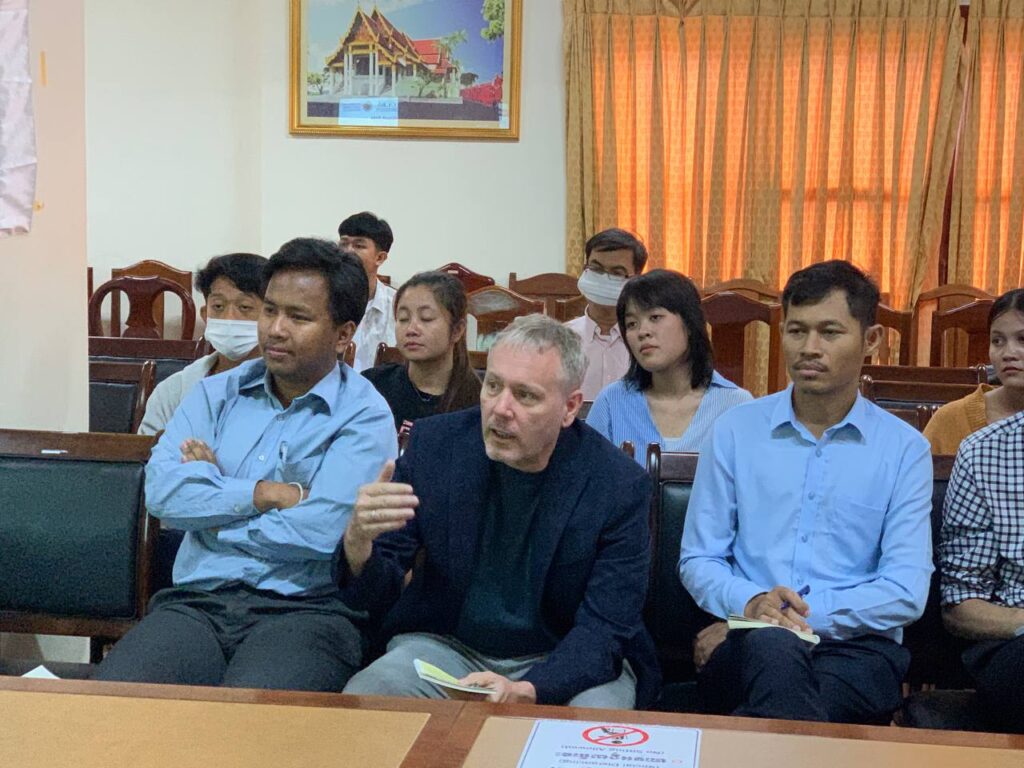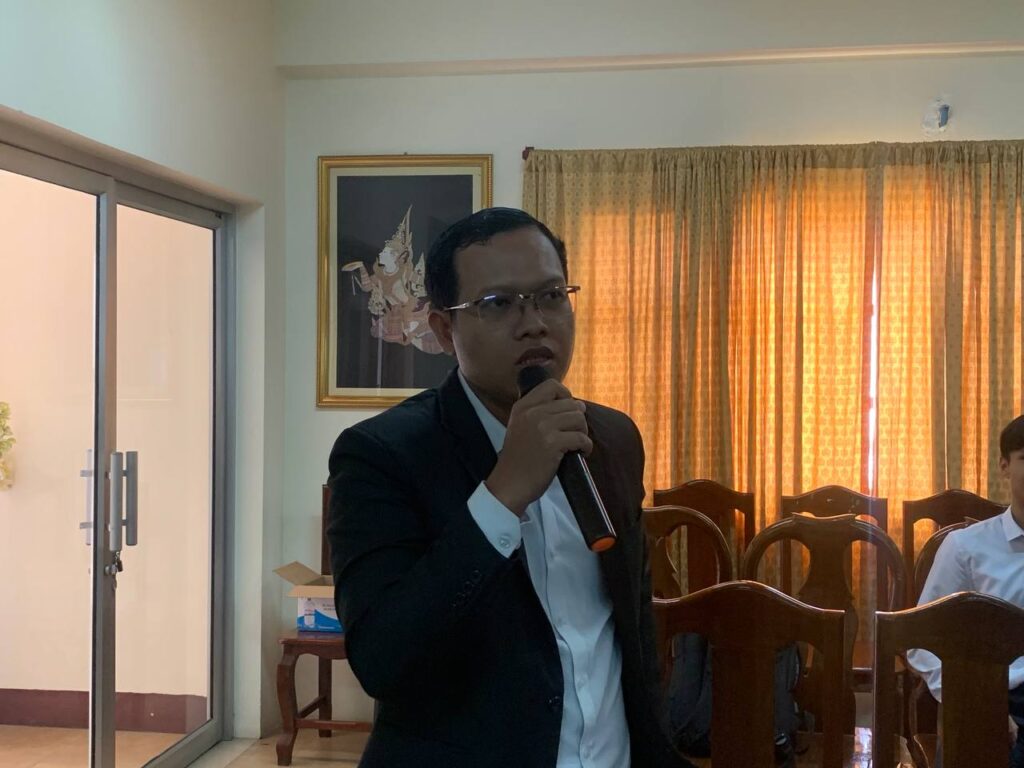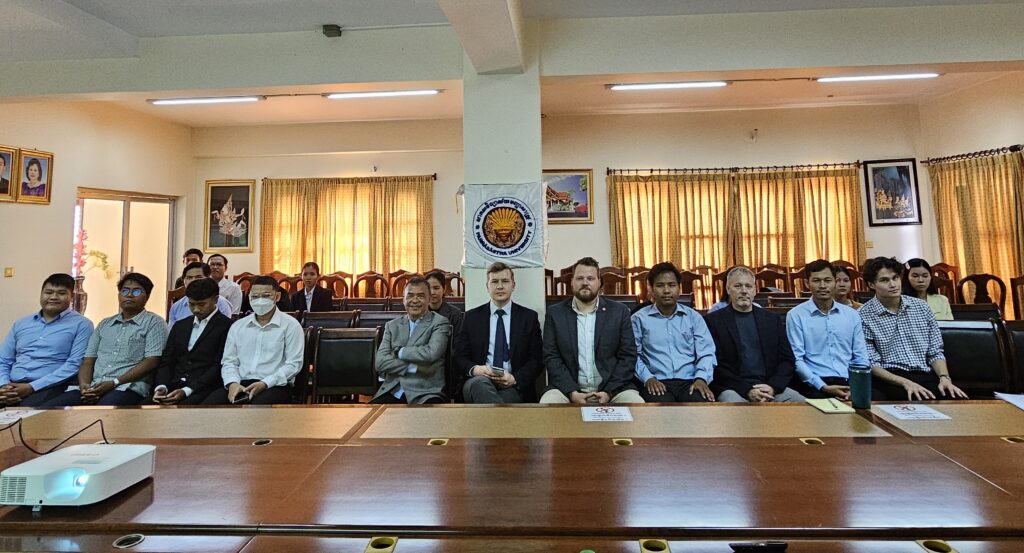On 11 June 2024, from 9:30-11:30am, at Pannasastra University of Cambodia (Toul Kork Campus), the Cambodian Center for Regional Studies (CCRS) organized a public lecture on “Practicing Peace: Conflict Management in Southeast Asia” by Prof. Aarie Glas, Associate Professor, Department of Political Science, Northern Illinois University. The lecture was moderated by Amb. Pou Sothirak, Distinguished Senior Advisor to CCRS. About 40 participants from diplomatic corps, CCRS researchers and PUC students attended this event. The lecture was supported by the PUC’s Faculty of Social Sciences and International Relations.
Amb. Pou Sothirak warmly welcomed the distinguished speaker, Dr. Aarie Glas, and thanked him for accepting to CCRS invitation to speak at this event. CCRS Senior Advisor underscored the important of this lecture in the context of the transition of great power influence which affect regional peace and conflict dynamics among the countries in Southeast Asia and South America. He mentioned that the participants today can expect to learn more from Dr. Glas’s exceptionally rich perspective on the ability of regional institutions such as those from Southeast Asia and South America that can make a difference in peace and conflict management, adding a new dimension to a discussion typically dominated by Western institutions such as the EU model.
Prof. Glas introduced to the audience a puzzle of why there has been a long peace and what kind of peace that Southeast Asia has enjoyed. He argued that Southeast Asia has experienced a “conflictual peace” which is a kind of peace which has real and sustained cooperation and community-building alongside with pervasive interstate violence, short of war. The reason for a long regional peace is because in part peace is managed. How peace is managed is shaped by diplomatic habits and practices that make possible sustained cooperative relations, and a tolerance of limited violence between states. Drawing upon the international practice theory which posits that much of social actions occurs rather unthinkingly, he chose a framework called “habitual dispositions” to explain the regional behaviors towards peace and conflict management.
According to his study, Prof. Glas argued there are seven traits of Southeast Asian habitual dispositions namely, prior consensus, informal dialogue, process over substance, non-interference, equality among member states, face-saving, and peaceful settlement of disputes. Drawn from his extensive interviews with various officials from ASEAN countries and the ASEAN Secretariat, he showed evidence of how robust these traits are ingrained in Southeast Asian mindset. Another case study that he used was how ASEAN responded to the Cambodia-Thailand border dispute over the Preah Vihear temple. Instead of using formality and legality to address the issue, ASEAN opted for the seven traits of habitual dispositions by focusing on informality and the role of diplomacy. He argued the ASEAN behaviors might not successfully solve the conflict, but it helped contribute paving the way for Cambodia and Thailand to talk in order to address the issue.
Prof. Glas also highlighted the differences in terms of habitual depositions between Southeast Asia and South America on how peace and conflicts are managed and practiced. The traits in South America are rules-based, formal dialogue, external mediation, and regional familiarity. These are stark differences, compared to the traits possessed in Southeast Asia. But Prof. Glas cautioned that these differences do not suggest effectiveness of the habitual depositions in each region. They have own strength and weaknesses. These traits exist in each of these two regions due to many factors including historical, political, socioeconomic factors along with how peace and conflicts are perceived in each region. Therefore, he concluded that each region can learn from one another but not necessarily duplicate their traits of habitual depositions.
There were lively exchanges of views between the guest speaker, the moderator, and the participants during the discussion session, making the lecture rich in substances. Many interesting questions were raised including how intensified US-China rivalry impacts on the ways Southeast Asia practices peace and manages conflicts, whether ASEAN conflict management are effective enough in response to the many regional and international crises happening near home and abroad, and whether the Southeast Asian habitual dispositions can be changed and improved given time and regional and international complexities. Prof. Glas responded to these questions interestingly, giving useful food for thoughts for the participating audience.
There was also a captivating exchange between Amb. Pou and Prof. Glas on ASEAN roles in the Preah Vihear dispute between Cambodia and Thailand from 2008 to 2011. Amb. Pou argued that while ASEAN contributed to help address the conflict including the ASEAN package deal, the regional bloc’s lack of real enforcement mechanisms in settling the dispute of the 4.6 square kilometers of land surrounding the Temple of Preah Vihear. ASEAN Way of conflict management between member states remains ineffective, overshadowing by its own cardinal principle of non-interference. Prof. Glas acknowledged this useful comment.
CCRS would like to express our appreciation to Prof. Aarie Glas for a lecture rich in substances. We also deeply appreciated the excellent moderation of the event by our Distinguished Senior Advisor, Amb. Pou Sothirak. Our thanks also went to Prof. Kevin Nauen, Dean of the Faculty of Social Sciences and International Relations, PUC for the support extended to this event. We also want to thank to all participants, particularly university students and CCRS researchers for actively taking part in this lecture.
The event was concluded in a cordial atmosphere.
